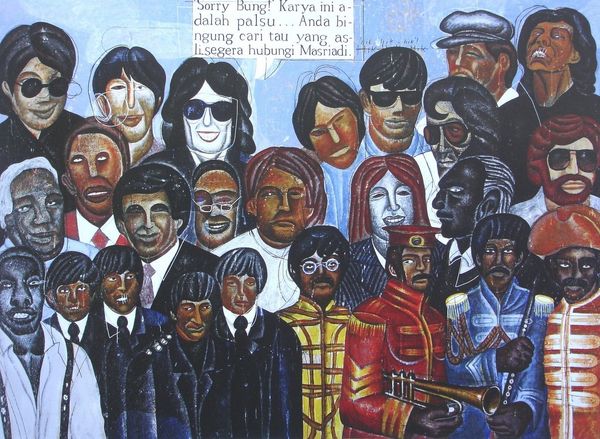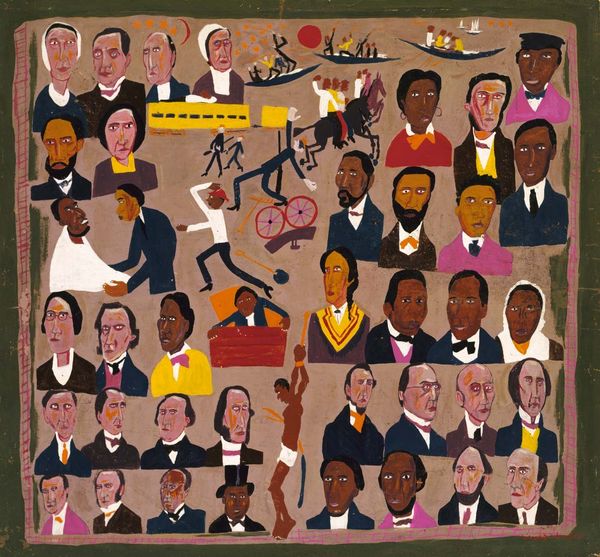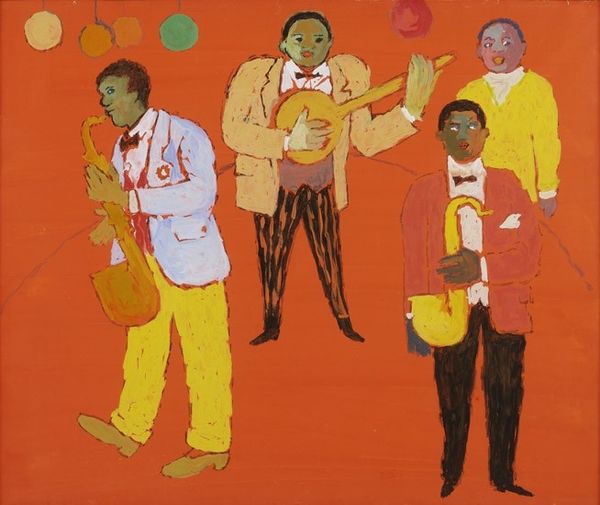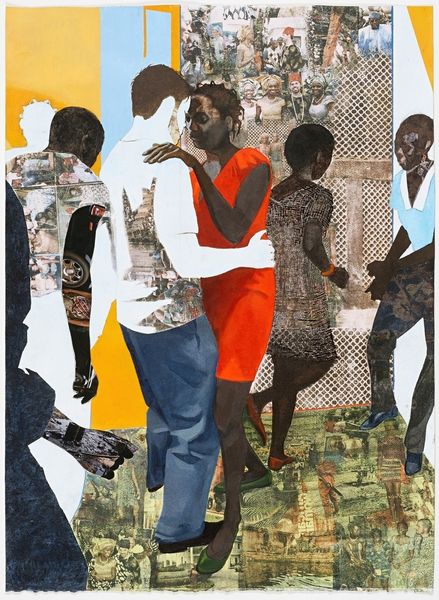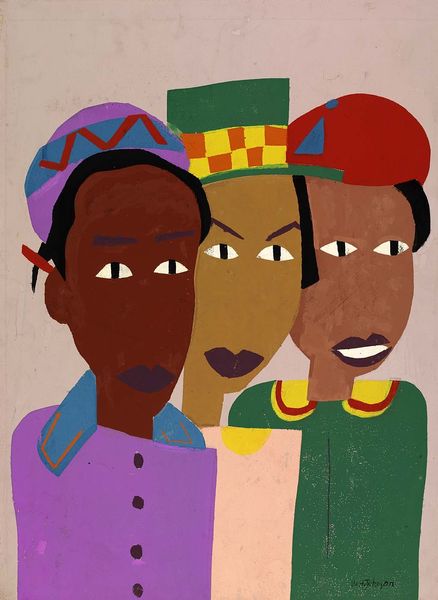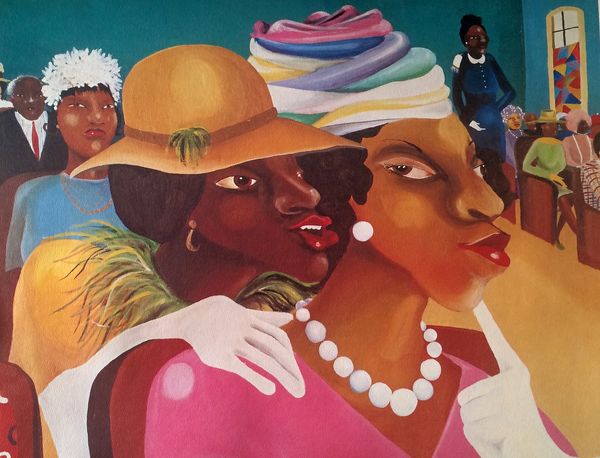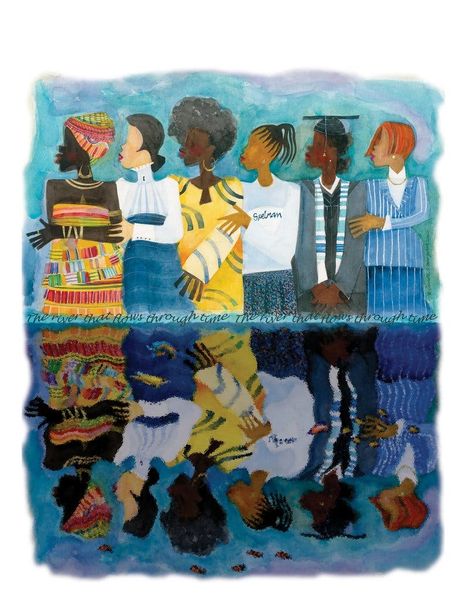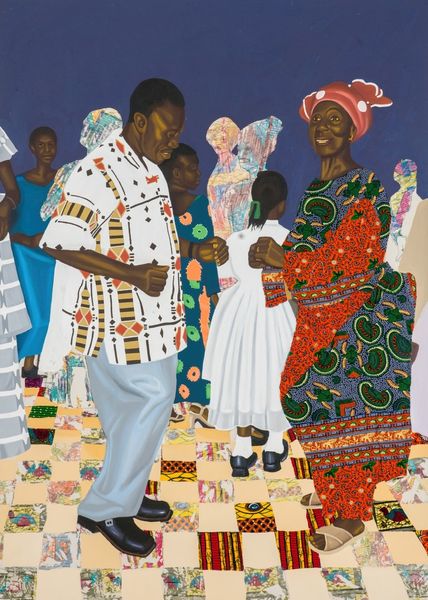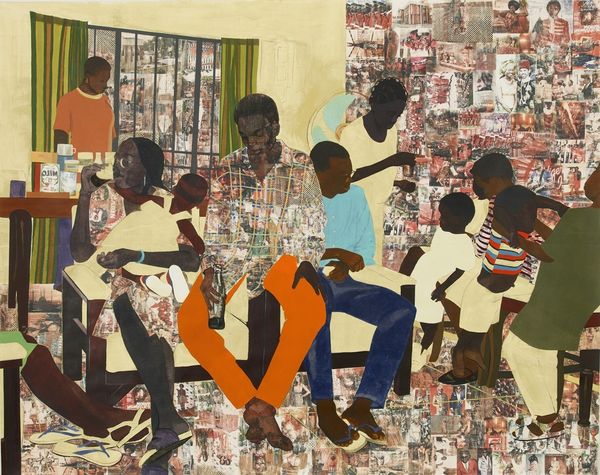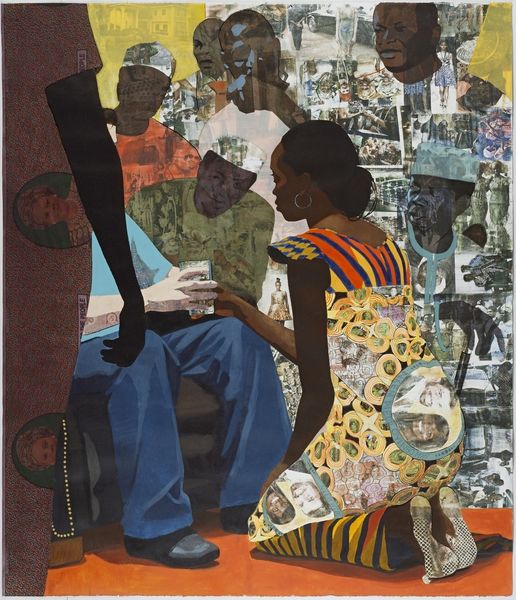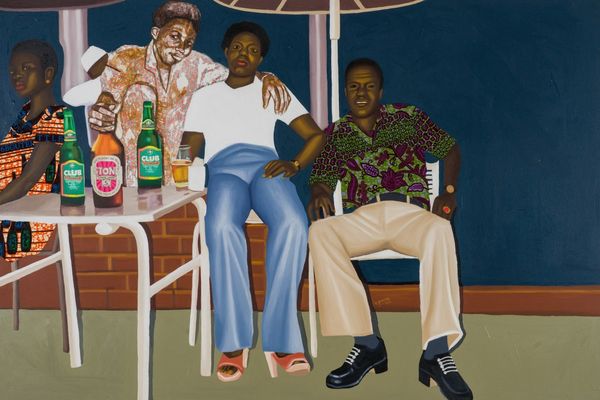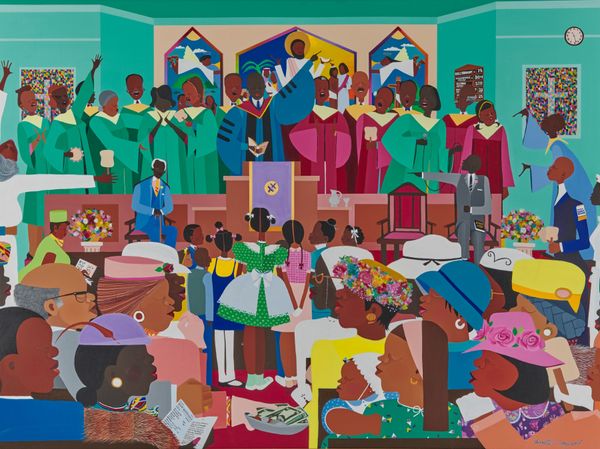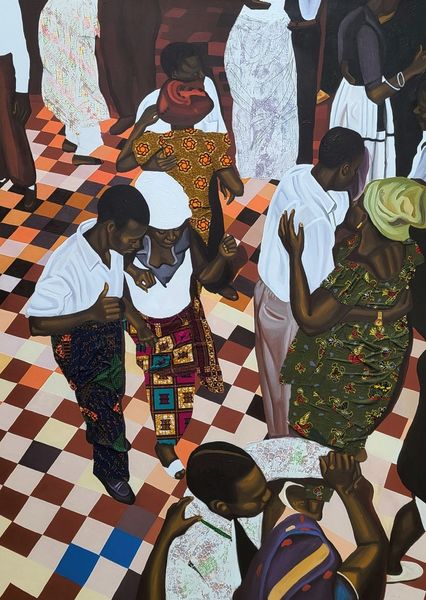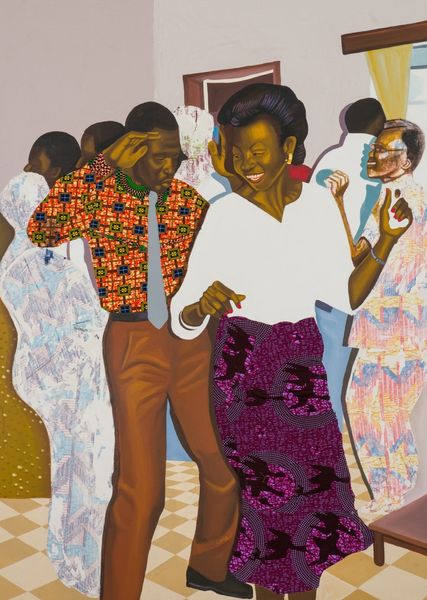
Copyright: Yu Youhan,Fair Use
Curator: Yu Youhan's "Mao and His Friends from the Third World," painted in 1992. It's certainly a striking acrylic on canvas. Editor: Yes, immediately captivating! It's riotously patterned. All these smiling faces pressed together, it's quite joyful in a naive way. Curator: The motif of Mao with figures representative of developing nations carries a weight of historical significance, gesturing to the alliances formed during the Cold War. Editor: And rendered in this bright pop art style, the patterns on their clothing become this flattened visual field—it really undermines traditional portraiture. There's something so wonderfully artificial about the color choices, heightening the sense of unreality. Curator: Absolutely. The historical context informs the reading of the work—reflecting China's engagement with postcolonial movements, specifically within the Non-Aligned Movement. It’s intriguing how Yu uses the visual language of Pop to frame that era’s political theater. Editor: I find it fascinating how that repetition contributes. The figures seem almost suspended within the fabric of pattern itself, eroding their individual identities, yet emphasizing some collective visual statement about international relationships. Curator: The title, of course, invites reflection on those power dynamics. Consider what 'friendship' signifies in an international context—there are implications of cultural exchange and solidarity but also echoes of hierarchy and influence. Editor: True, those open arms and toothy grins are rendered through simplified forms; they become almost cartoonish, flattened into these signs of forced optimism. Curator: It certainly provokes thought on how visual culture can perpetuate and reshape political memory. I am moved by Youhan’s commitment to addressing China’s contemporary sociopolitical environment within the canvas. Editor: Yes, looking at the work once again, it resonates both due to the artist's color usage, and these figures suspended mid-air inside those bright psychedelic shirts. I was at first so ready to be sarcastic, and it really made me contemplate its visual complexity.
Comments
No comments
Be the first to comment and join the conversation on the ultimate creative platform.
